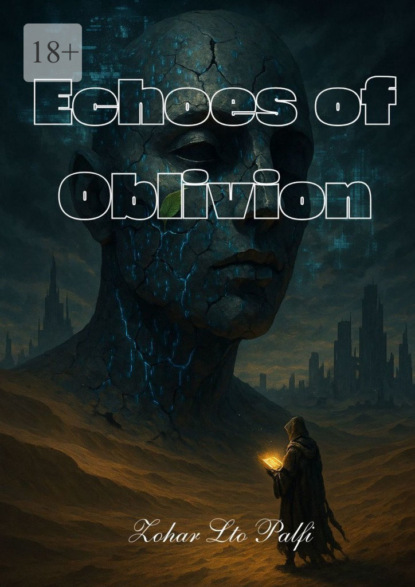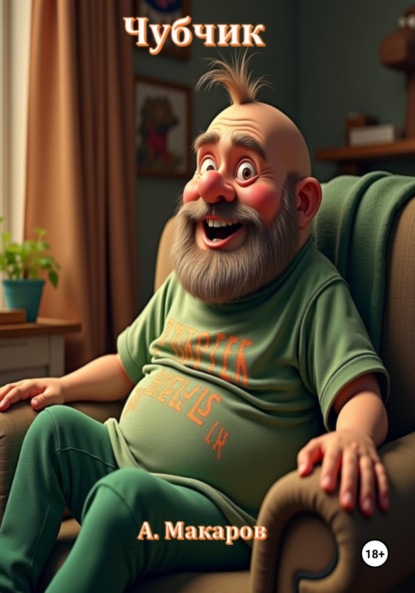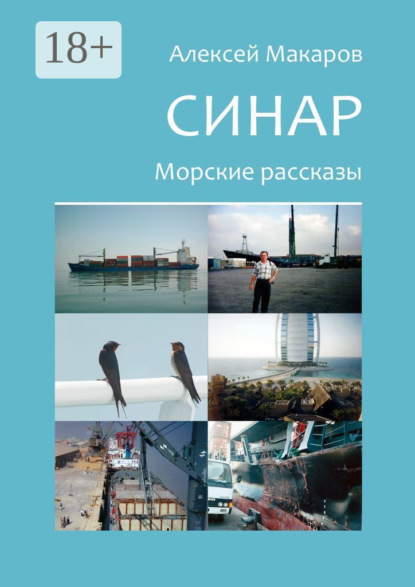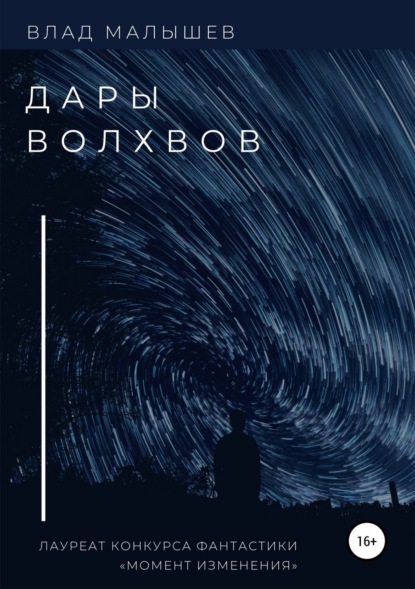Echoes of Oblivion

- -
- 100%
- +

© Zohar Leo Palfi, 2025
ISBN 978-5-0067-4255-0
Created with Ridero smart publishing system
Echoes of Oblivion
From the Author
Memory is a ghost.
She whispers stories to us that we would rather forget. It shows us faces we will never see again. It holds us captive to what was, keeping us from stepping into what could be.
What if one day all the ghosts disappeared? What if there is absolute, blessed, terrifying silence?
“Echoes of Oblivion” is an attempt to look into that silence. Into a world that has received the greatest gift and the greatest curse – a chance to start from scratch. But on that clean slate, old ink bleeds through, and in the ensuing silence, a new, strange echo is born.
This book doesn’t give answers. It just asks questions. About what makes us human. About the price we pay for knowledge. And what is scarier: remembering everything or not remembering anything.
Welcome to a world where the past is the enemy, the future is a fog, and the present is but an echo of what has been lost forever.
Zohar Leo PalfiPROLOGUE
Time: Approximately 200 years after the Blackout.
Location: Settlement at the foot of a rusty space elevator skeleton.
The old man sat by the fire, his face a map of wrinkled roads. The children, whose eyes had never seen light other than fire and stars, drew closer. The night was cold, and the old man’s stories warmed better than any cloak. He was the last of the Guardians who remembered the Great Saga by heart.
– Tell me again, Grandfather,” the girl with the scorched grass hair asked. – About the Age of Glass Eyes.
The old man did not answer at once. He slowly reached his bony hand toward the fire, and in its light the dull metal on his wrist gleamed. It was a bracelet, simple and smooth, without a single pattern. The children had seen it a thousand times. He had never taken it off. No one knew that this bracelet had once been more than just metal. It was a screen. It showed his wife’s pulse, her location, her laughter translated into colored charts. It was the thread of their personal web. Now it was just cold iron, a reminder of ghostly warmth. This bracelet was his personal scar, his entry point into the Great Saga.
The old man nodded, his gaze drifting into the darkness, to where the lights of giant cities once shone.
– In those times,’ he began, his voice creaking like an old tree, ‘people had a common soul. It lived not in their bodies, but in the invisible Web that entangled the whole Earth. Their memories, their dreams, their love and hate – everything flowed through this Web like blood through their veins. They thought they had conquered loneliness.
But it was a strange loneliness. Imagine, children: you are never alone, not even in your head. Your every strong emotion – fear, joy, shame – echoed faintly in millions of others. Your embarrassing failure on an exam was made public online, becoming a fraction of a percent in the overall failure statistics. Your secret crush could be analyzed by algorithms and compared to another person’s “compatibility profile.” The web gave togetherness, but took away the right to secrecy. It was a warm, cozy cocoon that prevented you from making a single free movement.
They thought they had conquered death. They forgot that any spider’s web is only for one purpose – to catch flies.
He paused, letting the words soak into the silence.
– They called it knowledge. But knowledge without wisdom is poison. They remembered everything, but understood nothing. And one day, their shared soul became sick. It was tired of remembering. And then came the Great Silence. A disconnection.
The children held their breath. They had heard the story dozens of times, but it still mesmerized them like a tale of ancient gods and monsters.
– People woke up in their bodies like strangers. Their heads were empty, like this jug without water,” the old man tapped the clay vessel beside him. – And they had to learn everything all over again: to make fire, to grow bread, to trust each other. And most importantly, to tell stories. Because when everything is taken away from you, the only thing you have left is the story of how you lost everything.
He looked into the burning eyes of the children.
– Do you want to hear the Saga of the Beginning of the End? The story of how it all happened? The story of the Librarian who tried to save the books, the Builder who believed only in stone, and the Prophet who wanted to burn the very word “memory”?
The children nodded in agreement.
The old man took a deep breath, taking in the smoke-scented air. He looked at their young, pure faces and felt a pang of guilt. He would tell them the Saga, as he had told it dozens of times. But he would again leave out the most important part. The fourth person in the story. The Phantom who had pulled the string. About why the smile on the Librarian’s daughter’s face was not only happy, but a little frightened. But children don’t need to know that yet. The saga needs to be told in order.
The children nodded in agreement.
The old man took a deep breath, filled his lungs with smoke-scented air, and began his story.
– It all began at the golden hour, 5:34 p.m., when one man who loved books more than people looked up at his daughter’s smile frozen in mid-air…
TABLE OF CONTENTS
Part I: The Beginning of the Age of Oblivion
Chapter 1 – Awakening: 17:34, June 16, 2045
Chapter 6 – Children of Oblivion
Chapter 7 – Stripes and Scars
Chapter 8 – Parched Creeks
Chapter 9 – The Search for the Shards
Chapter 10 – Preacher of Oblivion
Chapter 11 – The Stone Family
Chapter 12 – First Harvest
Chapter 13 – Memories in the Night
Chapter 14 – The Stone Codex
Chapter 15 – Two Faiths
Part II: The Renaissance (50 years later)
Chapter 0. Hungry Winter (25 years after the Shutdown)
Chapter 1 – The Oblivion Generation (50 years after the Shutdown)
Chapter 2 – Guardians of the Oral Word
Chapter 3 – Echoes of Old Voices
Chapter 4 – Memory Markets
Chapter 5 – The Rise of the New Science
Chapter 6 – The Digger’s Way
Chapter 7 – Dead Cities
Chapter 8 – The Origins Project
Chapter 9 – Whispers in the Ruins
CHAPTER 9.5. The Shepherd and the Storm
Chapter 10 – The Doctrine of Purification
Chapter 11 – Grandfather’s Inheritance
Chapter 12 – Trial by Faith
Chapter 13 – Rise of the Machines
Chapter 14 – The First Grains of Doubt
Chapter 15 – Lost Portraits
Part III: Truth and Consequences (100 years later)
Chapter 1 – The Great Dilemma
Chapter 2 – Controlling the Narrative
Chapter 3 – Forbidden Zones
Chapter 3.5. The weight of the new sky
Chapter 4 – Lines of Resistance
Chapter 5 – The Ancestral Cipher
Chapter 6 – Clash of Ideas
Chapter 7 – Architect of Oblivion
Chapter 8 – The Cry of the Echo
Chapter 9 – Choosing a New World
Chapter 10 – Crossroads of Memory
Chapter 11 – The Last Battle for Knowledge
Chapter 12 – Recovery
Chapter 13 – Echoes of Eternity
Chapter 14 – New Stories
Chapter 15 – Dawn of Memory
Part I: The Beginning of the Age of Oblivion
Chapter 1: Awakening: 17:34, June 16, 2045
Fragment of lost information: transcript of a speech by Kevin Tsang, CEO of Chrono-Synaptic Corporation, at the World Economic Forum, February 4, 2045.
“…We don’t use technology anymore. We are technology. Our memories, our connections, our history are no longer ephemeral pulses in gray matter. They are a crystal clear, verified, eternal stream of data. We have digitized the soul of humanity, placed it in an indestructible cloud, and thereby defeated oblivion. We have become the gods of our own history. Nothing. Never. Will not. Lost…”
Elias Vance loved this hour. 17:34. The golden section of the day, when the world was still humming in its work rhythm but already anticipating the evening peace. The sun, slowly slipping toward the horizon outside the window of his apartment on the 73rd floor of London’s Charade, cast a molten amber over the room. It played on the facets of his water glass, on the holographic dust particles dancing in the air, and on the smooth, almost invisible surface of his augmented reality lenses.
The water in the glass was real, from an alpine glacier, with a slight tang of ozone-a small luxury in a world where almost everything was synthesized. Elias appreciated such things. They were anchors, keeping him in physical reality, keeping him from finally dissolving into the streams of information he curated.
The world for Elias has always been multi-layered. The top layer was real: old, favorite paper books on the shelves, smelling of dust and eternity; the warm wood of his desk under his fingers; the weight of real glass in his hand. The lower, always active layer is digital: translucent windows of news feeds, stock quotes, a chat room with his daughter Lena constantly hanging in the corner of his eye, and, of course, his main project – Mnemosyne, a worldwide archive of verified historical data. He was not just a historian. He was the Archivist of humanity. His job was to ensure that the past had no white spots.
And in this work he found a bitter, almost perverse pride. He, a connoisseur of paper books, despised the superficiality of the digital age, yet he was its high priest. It was his algorithms that helped Mnemosyne weed out “false memories” and “emotional distortions,” creating a perfectly clean, sterile, objective history. Sometimes, rereading the old, yellowed Herodotus with its rumors, myths, and outright fabrications, Elias felt like a god correcting the mistakes of a naive but lovable child. He wasn’t just preserving the past. He castrated it, stripping it of its living, contradictory flesh and leaving only a calibrated, safe skeleton. He was part of the very system that promised to defeat oblivion, and he secretly believed it was right. That belief was about to betray him.
He took a sip of water, and his lenses obligingly displayed biometric data at the edge of his field of vision: hydration 98%, mineral balance normal. The world for Elias hadn’t been a whole for a long time. It was a palimpsest, a layering of realities. The upper, physical layer was his refuge: the smell of old books, the warmth of wood, the heaviness of glass. But all his life, work and communication took place in the lower layer, in the augmented reality, woven from trillions of data streams.
Right now, through the wall of his apartment, he was seeing translucent “archival ghosts” – reconstructions of events that had taken place on this very spot. Here is Lord Nelson discussing the plan for the Battle of Trafalgar. And here, already from Elias’s personal archive, is a holographic print of his daughter Lena’s laughter when she was very young. He could run it and the room would fill with phantom childish laughter. Memory ceased to be an internal process. It became an interior element. The whole world was a living, breathing museum where everyone could be their own curator. Elias smiled. It was a good world. Orderly. Eternal.
– Dad, can you hear me? – Lena’s voice, clear and a little distorted by digital compression, sounded right in his head thanks to the neural interface. Her face flickered in the air in front of him – smiling, framed by dark hair. Beside her, five-year-old Leo, his grandson, was bouncing around.
– Loud and clear, sweetheart,” Elias smiled. – Leo, show Grandpa your new cyberdragon.
The boy enthusiastically held the toy up to the camera. The dragon flapped its holographic wings, and Elias’s room was filled with myriads of virtual sparks.
– He breathes fire! And sings songs from the Legends of Orion! – shouted Leo.
– Impressive. Almost as impressive as Homer…” Elias started to say, but stopped short.
Something happened.
It wasn’t like a sound or a flash of light. It was a sensation. A sudden, chilling draught in the deepest part of his mind. It was as if someone had tugged at the invisible thread that bound him to the world, and it had snapped with a soundless snap. For a moment it seemed to him that he was falling into an endless void. Gone was the background noise – not the street noise, but the internal noise that everyone was used to – the subtle hum of the Net, the whisper of trillions of thoughts, data, lives. The world inside his head became sterilely quiet.
It wasn’t like a glitch. Not like a broken connection. The image of Lena and Leo didn’t shatter into pixels. It just… froze. Frozen in a perfect freeze frame: their daughter’s smile, their grandson’s delight, the rainbow sparks of the dragon.
– Grandpa, do you remember the lullaby you sang to me when I was little? – Leo asked suddenly, distracted by the toy.
– Of course I remember, my good man,” Elias smiled, and opened his mouth to launch from his memory the very tune his father had sung. Simple, old, non-digital…
But he couldn’t.
17:34.
Elias blinked. The image didn’t disappear. It hung in the air like a fly caught in amber.
– “Oracle, connection diagnostics,” he said aloud.
Silence.
The home assistant’s voice, a polite and omniscient synthetic baritone, did not respond.
– “Oracle?” – Elias repeated, feeling the first chill run down his spine.
He took off the lenses. The frozen image of his daughter and grandson disappeared. The room became flat, devoid of the usual information noise. Bare walls. A desk. Books. And silence. Not just the absence of sound. It was a deafening, absolute, vacuum silence. The silence of the Net.
He listened. Outside, outside the window, the rustle of electric cars could still be heard. But it was the wrong sound. Naked. Devoid of the invisible conductor that synchronized their movement. It was the sound of chaos that had not yet realized itself.
Elias walked over to the communication panel on the wall. The screen was black. Not off, not in sleep mode. It was dead. As if its very soul had been taken out of it. He pressed the power button. Nothing. Again. Nothing again.
Panic hasn’t come yet. It’s confusion. A global disruption? That hadn’t happened in thirty years. Backup systems, decentralized networks, quantum redundancy… The system was designed to withstand a meteorite, a solar storm, even a nuclear strike. It couldn’t just… shut down.
He walked over to the window. The view he knew by heart had changed. The skyscrapers stood their ground, the perpetual motion of electric cars on the magnetic tracks below continued, but something was wrong. The giant advertising holograms that turned London into a neon dream twenty-four hours a day were extinguished. The façade opposite, where the globe in the Chrono-Synaptic logo was forever spinning, was now nothing but a gray, lifeless concrete wall.
And then he saw it. The electric car in the middle row suddenly lost traction on the magnetic strip. It didn’t crash, it didn’t explode. It just slid smoothly off the track and slowly, almost lazily, crashed into the guardrail. Followed by another one. And another. The autopilots, controlled by the unified transportation network, were shutting down. The people inside, who were used to trusting the machine, panicked and grabbed the hand wheels that many of them had forgotten existed.
Fear began to come up his throat like an icy barbed wire. Elias turned back to the table. He needed knowledge. He needed information. It was his craft, his essence. He sat back in his chair and closed his eyes, trying to access his own memory, that last bastion that no one could take from him.
“The First Punic War. Causes. Carthage and Rome. The Dispute for Sicily…”
The facts were there. Dry as bones. But something was gone. Details. The names of the consuls. The exact dates of the battles. He knew he’d known them until five minutes ago. He could have named them in his sleep. Now in their place was… a hole. An unpleasant, throbbing void.
It was like trying to read a book in which all the proper names and dates had faded. The skeleton of the story remained, but the flesh was gone. He felt the contours of the missing knowledge like an amputee feels a phantom limb. It wasn’t just “forgotten.” It was “cut off.”
He tried something else. Poetry. His favorite is Yates. “The Second Coming.”
“The falcon is circling, circling in the funnel…”
What’s next?
“The falconer’s voices cannot be heard…”
He knew those lines. He could feel their rhythm. But the words… the words scattered before they could form. They were like sand slipping through his fingers. He tensed, trying to grasp them, and felt a strange, dull pain in his temples. It wasn’t a headache. It was the phantom pain of an amputated memory.
With horror, he realized. It wasn’t about the Grid. It wasn’t the electricity.
Something happened to them. All of them.
He tried again. The simplest one. His late mother’s face. He closed his eyes, trying to conjure up her dear features, her kind smile. An image emerged. But it wasn’t her.
An unfamiliar Asian woman with a short haircut and tired, longing eyes looked at him. She was dressed in the uniform of a factory worker, and for a split second Elias smelled the phantom odor of machine oil and ozone. He had never seen this woman. He didn’t know her. But her face was in his mind, in the place of his mother’s face, clear and real.
He shrieked and opened his eyes. The stranger’s face was gone, leaving behind a nauseating sense of intrusion, as if someone else had just walked through his soul in muddy boots.
It wasn’t just oblivion. It was…replacement. Substitution.
He rushed to the bookshelves. His hands, trembling, fumbled for a heavy volume of Herodotus’s History. Paper. Real. Eternal. He opened the book at random. The words were there. Black letters on a cream-colored page. He could read them.
“Xerxes, hearing this, rejoiced and answered…”
He read, but the meaning was slipping away. The name “Xerxes” was just a sound. He knew it was a Persian king, but the whole vast, complex web of associations that linked that name to thousands of other facts – to battles, to culture, to geography, to the consequences of his campaigns – that web had thinned and torn. He looked at the word, and it was empty.
It was like waking up after a serious illness, where you recognize your reflection in the mirror but feel no connection to the person looking back at you.
He looked out the window again. Down below, the chaos was growing. People were getting out of stopped cars. They weren’t screaming. They weren’t running. They stood in the middle of the frozen streets, looking around with the same expression on their faces. The expression of a lost child who suddenly realized he had let go of his mother’s hand in a huge, unfamiliar crowd. They looked at their dead phones, at the extinguished shop windows, at each other’s faces, and the same mute question fluttered in their eyes: “Who am I? Where am I? What am I supposed to remember?”
A man in a business suit was pointlessly pointing his finger at his dark communicator. Then he raised his head, looked up at the skyscraper where Elias lived, and his face contorted with the horror of realization. It wasn’t just that he couldn’t make a phone call. He couldn’t remember where he needed to go. His home, his job, his life-all were dots on a digital map that had just disappeared.
And that’s when the worst of it began. The man in the suit opened his mouth to scream, but instead of screaming, a perfectly pitched Hindi phrase came out of his throat. He was startled by his own voice and fell silent, clutching his throat in horror. The woman next to him, who was trying to help the fallen man, suddenly froze and began to make strange, rhythmic movements with her hands, as if conducting an invisible orchestra, tears streaming down her cheeks from the music that only she could hear.
Elias looked at it, and his blood ran cold in his veins. He recalled the stranger’s face in his memory. He realized everything.
The wave that hit them wasn’t just a wave of oblivion. It was a monstrous failure in the exchange protocol. The web didn’t just break. It burst, and all its contents – trillions of souls, memories, skills, emotions – spurted out in all directions like blood from a severed artery. And those bloody, alien splashes settled in the heads of the survivors, mingling, displacing, driving them mad.
And then Elias Vance, the Archivist of humanity, the keeper of trillions of terabytes of its history, realized a chilling, apocalyptic truth.
It wasn’t that they lost access to the data.
It was much worse than that.
The data has lost access to it.
The wave he felt at 17:34 was not an electromagnetic pulse. It was a wave of oblivion. It swept across the planet, washing out not servers or hard drives.
She was washing out their souls.
The world didn’t end with a bang. It ended in silence. A deep, all-encompassing, collective sigh, after which nothing but a faint, fading echo remained in the memory of mankind.
Echoes of what they once were.
Chapter 2: The Silence of the Net
A fragment of lost information: from the children’s educational program “Smart World,” episode #214, “What is Memory?”, 2042.
“Imagine that your memory is a huge, magical library where every book is your memory! And the Internet, our faithful friend, is a super-librarian who helps you find any book, even the oldest one, instantly! It never gets tired and never forgets anything. With him, our memory becomes limitless! Isn’t that a miracle?”
Elias Vance stood in the middle of his apartment, and his world, which ten minutes ago had been humming with trillions of invisible connections, was now deafeningly silent. The silence was pressing on his ears. It wasn’t just silence. It was the absence of the background hum of civilization, that ubiquitous, low-frequency omm that came from a planet entangled with technology. No one noticed it while it was there, but its disappearance left behind a gaping acoustic wound. The world didn’t just go silent. It exhaled.
He looked at his hands. The hands of a historian, accustomed to the touch of touch screens and light gestures in virtual space. Now they seemed helpless, alien. He forced them into clenched fists. A physical effort. A real one. The muscles responded with a dull, unfamiliar ache.
His gaze fell on the books. “History” by Herodotus. Nearby, Marcus Aurelius’s “Meditations,” Machiavelli’s “The Sovereign,” a tattered volume of Shakespeare. They used to be artifacts, a sentimental hobby, a tribute to a bygone era. Now they’ve become weapons. They have become the only anchors in an ocean of oblivion. There was more reality in their typographic ink and yellowed pages than in the dead city around him.
Outside, beyond the panoramic window, confusion was changing to panic. People who had gotten out of their frozen electric cars huddled together like frightened sheep. Their faces were contorted with a grimace of cognitive dissonance. They tried to speak to each other, but words were hard to come by. Elias saw one man in an expensive suit gesticulating furiously, trying to explain something, and then suddenly he was silent, staring into the void, as if he had forgotten not only what he wanted to say, but the very language he was speaking. His mouth opened and closed like a beached fish.



